
Dog castration: Your guide to male dog neutering

Philippa Short
25 July 2023 | 9 minutes read
Neutering your male dog is a big decision and it’s important to get the timing right for their physical and emotional wellbeing.
Expert dog behaviourist Philippa Short shares the pros and cons of neutering, explains what happens during surgery, and looks at common myths around castration and behaviour.
- What is dog castration?
> Dog castration and retained testicles
> Dog castration cost UK - How is a male dog neutered?
> Dog castration aftercare - What are the pros and cons of castrating a dog?
> The dangers of neutering your dog too early - What’s the best age to neuter a male dog in the UK?
- What happens if I choose not to neuter my dog?
- Neutering a nervous dog
- What to expect after neutering your dog
> Does neutering a dog calm them down
> Does neutering a dog make it less aggressive

What is dog castration?
Castration is a surgery performed by a vet to remove a dog’s testicles, which then stops them from being able to father puppies.
Some countries also offer dog vasectomies, where the dog keeps his testicles but has his sperm tube tied or a portion removed. This then prevents the sperm from travelling out of the testicles.
> Dog castration and retained testicles
Sometimes dogs can have a retained testicle and need surgery to find and remove it.
But how does that even happen?
- A dog’s testicles start behind the kidneys
- They travel down a tube called the gubernaculum
- The testicles then land in the scrotum around seven to eight weeks of age (but it can sometimes take a bit longer)
A testicle is retained when it stays inside the tube on its journey from the kidneys. Your dog needs to be neutered if he has one or two retained testicles by the time he reaches 14 months of age.
Testicles are not designed to stay inside a warm body as there’s a greater risk of them becoming cancerous.
Your vet may need to run scans to see where the testicle is stuck. It’s important to take your pup for regular check-ups so any retained testicles can be monitored.
Getting lifetime dog insurance as soon as you bring your pup home means you should be covered for medical conditions if they crop up throughout their life.
> Dog castration cost UK
Dog castration costs in the UK can vary based on:
- Where you live (for example, London pricing will be higher than vet clinics up North)
- The weight of your dog (bigger breeds will need more anaesthetics and drugs)
- Whether your dog has a retained testicle (which may lead to more complex surgery)
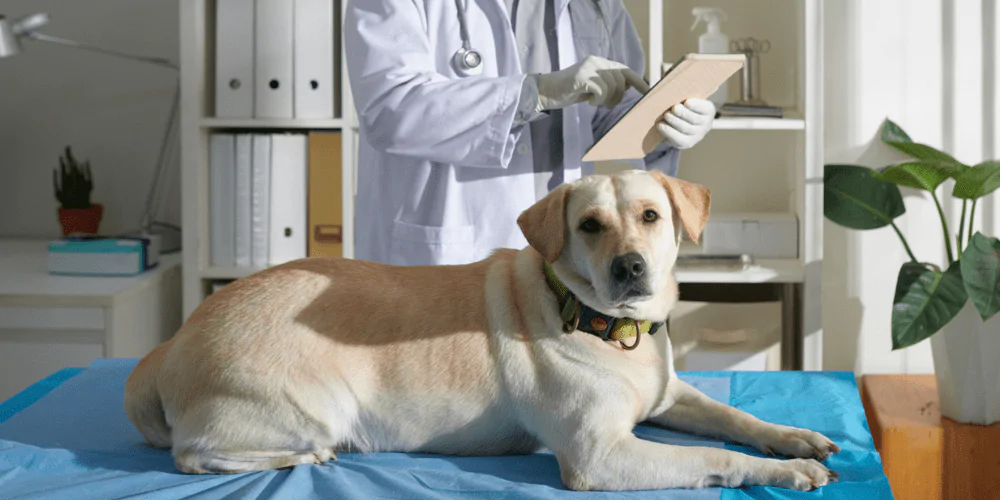
How is a male dog neutered?
Before your pup goes in for his castration surgery:
- You’ll need to stop feeding him eight hours before the operation
- You’ll then need to make sure he doesn’t have any water three hours beforehand
- Your vet will check him over (and may suggest a pre-op blood test) to make sure he’s in good health before the anaesthetic
- He’ll likely be given a light sedative first and then put under a full general anaesthetic once this has taken effect
During the operation:
- The groin area is clipped to make sure it’s surgically clean
- A small cut is made just above the testicles
- The testicles are popped up through the cut and removed
Your pup will then be weaned off the anaesthetic. A vet nurse is on hand to look after him and keep him warm and comfortable as he comes back around.
> Dog castration aftercare
Most dogs go home on the same day of their castration surgery. Here’s what you need to know to help care for your newly neutered canine:
- Your pup will likely be groggy for 24 hours while the effects of the anaesthetic wear off.
- He might need a light meal when he gets back. You can try giving him some fish or chicken.
- He may be wearing a surgical suit or collar to stop him from reaching his stitches. You can try putting a bit of peanut butter on the inside of the collar to distract him.
- Your vet may do a check-up two or three days after surgery and then another one around days seven to ten.
Many pups are back to normal in no time and don’t have any post-op issues. Complications often only happen when a dog is able to lick or chew their wound, which then leads to infection.
Encourage your dog to rest and keep calm for the first 48 hours after their operation. You can then take them for gentle walks on lead while they’re healing. Your vet will confirm when it’s safe for them to have more vigorous play and exercise.
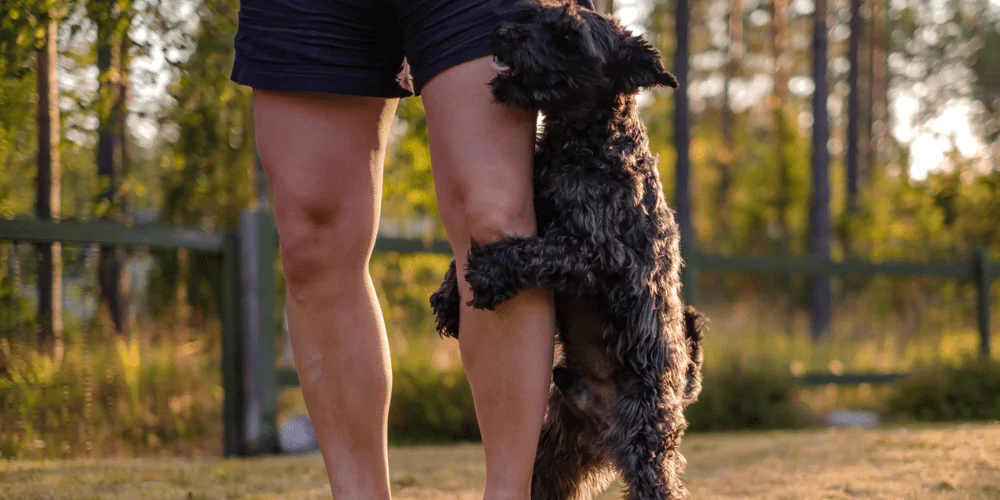
What are the pros and cons of castrating a dog?
Common benefits of dog castration given by vets include:
- Preventing testicular cancer
- Preventing or greatly reducing prostate cancer (though this is now being debated)
- Reducing perianal cancer
- Stopping the ability to reproduce (although a castrated male dog can still father a litter for up to 10 weeks after castration due to live sperm still in the testicles)
Dogs have also historically been castrated to help with lots of different behavioural issues. For example:
- Running away after females
- Dog-on-dog aggression
- Humping behaviour
- Howling when females are in season
It’s important to remember that neutering only solves behaviours directly caused by testosterone.
There’s a big debate around the correct age to neuter a male pup. Vets support castrating male dogs anytime from six months of age as rescue centres are overwhelmed and neutering helps with population control.
> The dangers of neutering your dog too early
Hormones play a big part in your dog’s physical development and closing their growth plates. Neutering too early stops your dog’s hormones from signalling to the growth plates to close and so they keep on growing.
This causes your dog to grow taller than he should be and also affects his joints, ligaments, muscle mass, and strength. These dogs are often at high risk of hip dysplasia and cruciate ligament injuries.
Several studies have shown that early neutering can shorten a dog’s life by up to 30%. It also increases their risk of getting:
- Hypothyroidism
- Urethral sphincter incontinence
- Infectious diseases
- Cardiac tumours, osteosarcoma, and lymphosarcoma
Some of the behavioural effects of early neutering include:
- Increased humping – it’s suggested your dog acts overly friendly to overcompensate for a lack of confidence, due to missing testosterone
- A reported increase in noise phobias – your dog becomes more sensitive to busy areas and loud noises like gunshots and fireworks
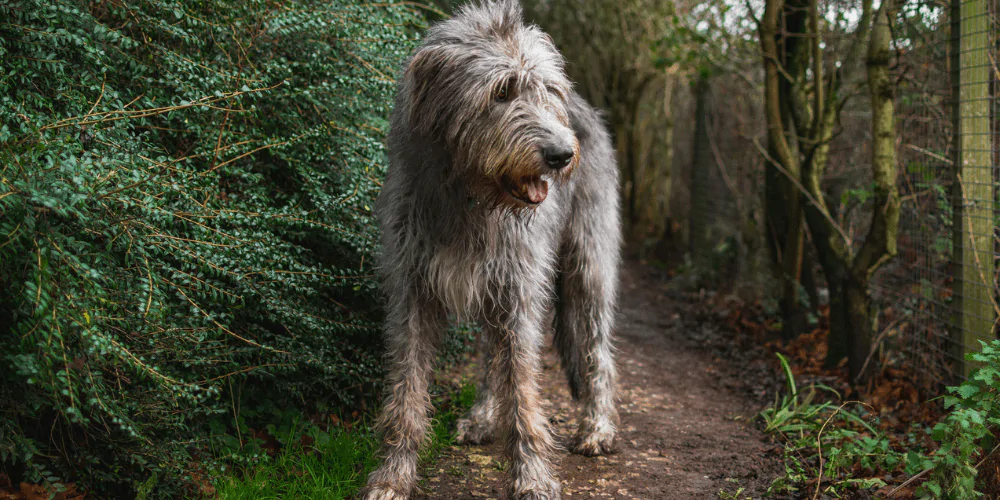
What’s the best age to neuter a male dog in the UK?
So now we know the risks of castrating your dog too soon, when’s the right time to do it?
The best time to neuter a dog is when they’ve reached full maturity. This means their growth plates have closed and their skeletal system has matured and settled.
To give you a rough guide, this is around one year old for small dogs, 18 months old for medium-sized dogs, and 2 years old for larger breeds.
Your vet can check your dog’s individual growth and support you on the right time for castration.
There may be occasions when you’re working with a trained behaviourist and they recommend early neutering. But this is bespoke to your dog and will weigh up the risks of negative behaviour from having too high a testosterone level.
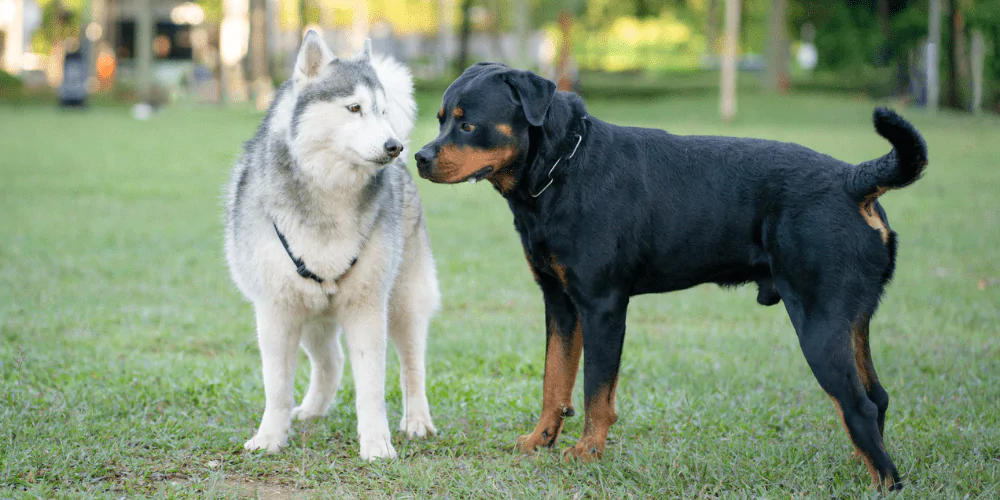
What happens if I choose not to neuter my dog?
Choosing not to neuter your dog means they’ll have the ability to father puppies. So you’ll need to be aware that they’ll have a very strong drive, especially during their canine adolescent phase.
Having an intact pup brings the responsibility of understanding and managing them until they’re at an age to be neutered.
For example, being vigilant on walks and the risks of letting them off-lead around a female dog in heat.
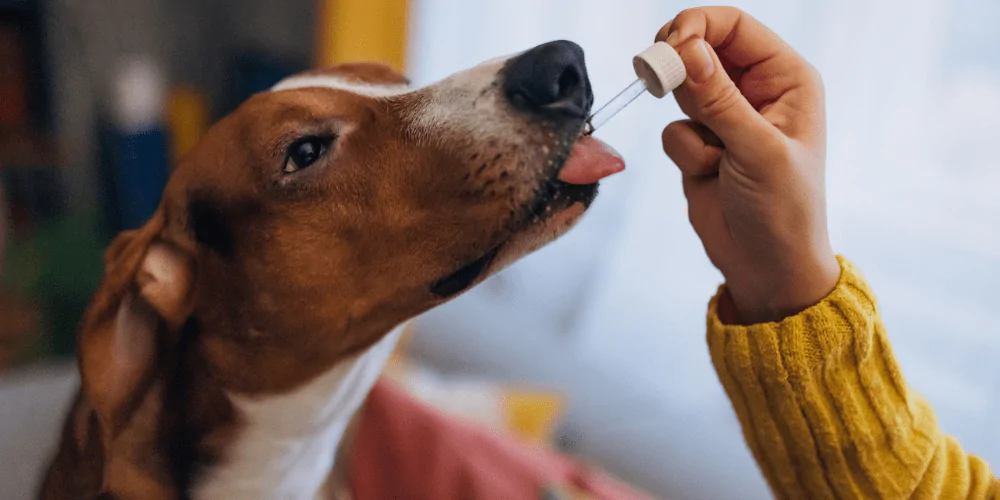
Neutering a nervous dog
Testosterone is often linked with confidence and removing it can leave your pup feeling less confident.
So you may need to think about not castrating your dog if they’re nervous. They’ll need these testosterone levels as a source of confidence to help stop them from becoming more anxious.
Some dogs may find that their testosterone goes into overdrive. So it’s always best to see a dog behaviourist before you look at neutering.
One option a behaviourist may suggest is chemical castration:
- A microchip is placed under your dog’s skin and releases a chemical which blocks their testosterone. You can choose between a 6 month or 1 year treatment.
- Your dog can have a surge of testosterone between weeks two and four of the implant before it then tails off.
- Their testicles will then shrivel dramatically and by the end of month two, you’ll know what it’s like to have a neutered dog.
I would recommend checking how your dog is doing between months two and five. If you’re going to go ahead with castration, time the surgery for the end of month five so their testosterone won’t rise.
But if you do see their behaviour worsen or you’re still not sure if it’s the right time to neuter, you can give your pup the next six month implant. This gives you more time to see if their behaviour improves.
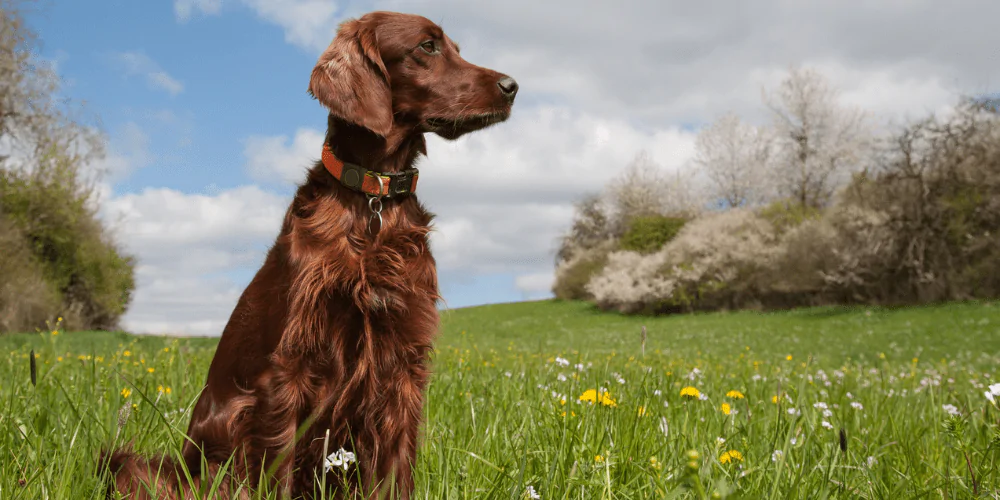
What to expect after neutering your dog
- The week after surgery – your dog will be calmer and quieter as he recovers from his operation but still has testosterone in areas like the pituitary glands
- One month after surgery – his testosterone levels start dropping
- 6 months after surgery – this is when you know his testosterone levels are at their lowest
Keep in mind that your pup can still have low levels of testosterone in his system for up to 10 weeks after his castration.
You may notice that your dog’s coat changes texture after being neutered. This is completely normal and nothing to worry about.
> Does neutering a dog calm them down
Neutering can help to calm down a dog who’s over-sexed and testosterone-fuelled as it takes away the driver (testosterone) of the behaviour.
But there’s also many other reasons why your dog could be acting ‘hyper’, such as:
- Being under exercised
- Having the wrong diet (too many complex carbs turn into sugar and causing hyperactivity)
- Boredom and cabin fever
Neutering won’t resolve any of these issues, which is why it’s always best to work with a qualified behaviourist.
> Does neutering a dog make it less aggressive
It’s common for many pet parents to think neutering is guaranteed to help their dog’s aggression, but this isn’t always the case.
Early neutering can actually increase the risk of aggression. This is because:
- You’re removing your dog’s confidence hormone while he’s still trying to figure out who he is, especially during the adolescent phase.
- The growing pains and joint problems that come from castrating too soon can lead to aggressive behaviour.
Neutered dogs have also been known to dislike intact dogs and ‘pick on’ them. And neutering won’t help certain types of aggression, such as predatory or nervous aggression.
A behaviourist can help you figure out the reasons why your dog is being aggressive and find the right way to help them.
Protect your favourite pup throughout his adventures with flexible dog insurance from Petsure.


